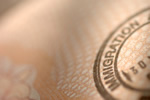Netherlands is the place for expat entrepreneurial businesses

Netherlands is the place for expat entrepreneurial businesses
Surveys of ‘best countries’ have their place in many would-be expats’ choices of where to go, but mostly concentrate on expat professional relocations or expat retiree destinations. Moving overseas to start a new business requires a different focus, with the Forbes Best Countries for Business known for providing the most relevant information for would-be expat entrepreneurs. Forbes’ latest release lists the Netherlands as third in a total of 153 countries for business friendliness.
The 153 countries in Forbes’ survey were evaluated for everything from innovation through corruption to investor protection, red tape, market size and quality of life, and stock market performance was removed from the list for the first time. Hopefully ignoring the fact that the UK was ranked first, even with Brexit looming and immigration getting tougher by the day, the Netherlands was ranked just below New Zealand and is far more convenient for those thinking of quitting the UK because of its lack of potential.
As the sixth largest European Union economy, the Netherlands was in the top ten places for innovation, technology, property rights, personal freedom and corruption, or rather its absence. The country has two types of business form, incorporated and unincorporated, with the former requiring a corporate personality or legal entity in the form of a notarial deed, which protects the owner/owners from potential debt liability.
Incorporated businesses must be set up via a civil law notary and registered with the Dutch Chamber of Commerce, and will have a higher level of taxes including corporation tax, which is considerably cheaper than personal income tax. In addition, admin and annual costs are likely to be more expensive than those of an unincorporated business, thus requiring a higher turnover. Unincorporated businesses can be directly registered with the Dutch Chamber of Commerce without the need to employ a notary, but company and private assets are not protected from business debts.
Related Stories:
- Expats find peace in the covid-19 refuge of Dahab town - July 20, 2020
- Expats in Malaysia still banned from overseas travel - July 17, 2020
- HSBC Asia to cut back on internal expat relocations - July 16, 2020
- China hits its expats with 45 per cent tax on overseas earnings - July 15, 2020
Latest News:
- Tips on a trouble-free relocation as an expat overseas - July 20, 2020
- Expats find peace in the covid-19 refuge of Dahab town - July 20, 2020
- Is Kuwaitization the unintended result of the oil price crash? - July 20, 2020
- Expats unhappy abut changes to Korean points-based visa system - July 17, 2020
- Chiang Mai and Bangkok no longer bargain locations for expats - July 17, 2020
- Expats in Malaysia still banned from overseas travel - July 17, 2020
- Vietnam welcomes expats to its safe, affordable lifestyle - July 16, 2020
- Asian tiger economies reach out to expats in Hong Kong - July 16, 2020
- HSBC Asia to cut back on internal expat relocations - July 16, 2020
- Tips on integrating for newly-arrived expats - July 15, 2020


